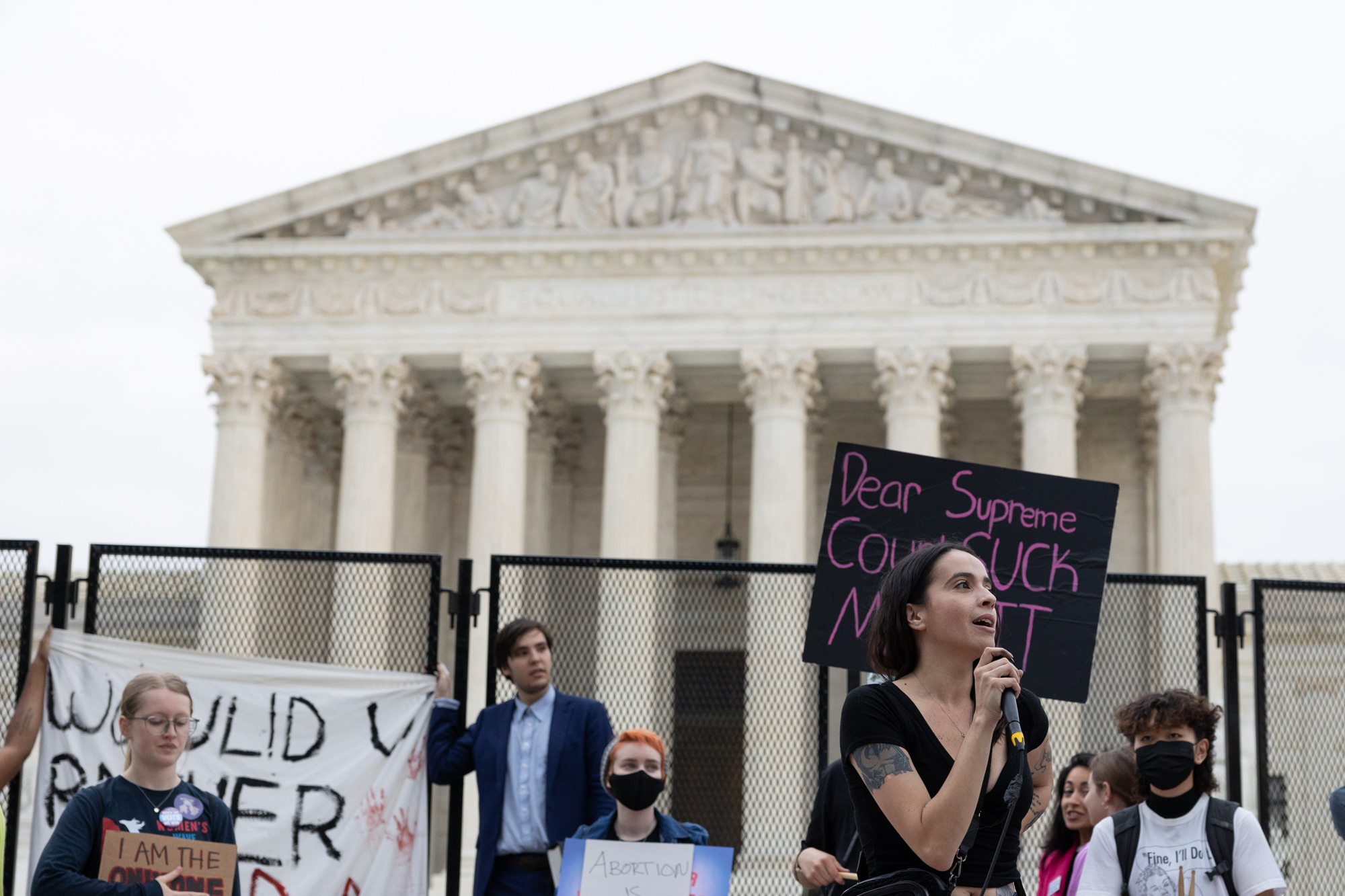When Carleigh Haris received the news on June 24 that the U.S. Supreme Court officially overturned Roe v. Wade, she cried in her car.
“It’s horrifying,” she said. “It makes me wonder what direction this country is going.”
Haris is among the University of Maryland community members concerned by the Supreme Court’s decision to overturn Roe v. Wade, a 1973 decision that established the constitutional right to abortion.
While the court’s draft opinion leaked in May, the official decision has left many feeling distressed, such as Dylan Lewis, an English doctoral student who heard the news during his workday in Germany.
“It was kind of like an out-of-body experience,” he said. “You’re looking at your phone and it’s a little push notification … It’s one sentence but it has so much weight to it.”
Lewis said he struggled to concentrate at work and felt himself “spiraling” throughout the day, disconnected from his German coworkers who weren’t as struck by the issue. The community he felt during the decision leak protests in May wasn’t there, and Lewis faced the news feeling isolated.
Lewis was also concerned about privacy and LGBTQ+ rights in light of Justice Clarence Thomas’ opinion that other court decisions providing protections based on the right to privacy should also be reexamined.
[UMD students gather in D.C. to support abortion rights after leaked Supreme Court decision]
Natalia Isabal, a sophomore criminology and criminal justice major, remembers opening her phone midday to a barrage of messages after the overturned decision was released.
Isabal is a member of Pro-Choice Terps, a student organization advocating for abortion rights. While the group has not yet made plans, Isabal and other members are considering options for action.
While abortion rights within Maryland will likely stay in place and possibly expand, experts say there will be other national consequences.
Dr. Julia Steinberg, a family science associate professor in the public health school, has researched the relationship between abortion and mental health. She explained the claim that abortions are a cause of mental health problems is cited in justification for multiple state-level policies to restrict abortion access. However, she has found no significant association between the two phenomena. Now, she wonders whether in the event of additional financial, logistical and mental burdens people may face in searching for or being denied an abortion, that association will change.
“The process by which having to get an abortion, it’s going to be difficult … for those who have the least resources in our society,” Steinberg said. “The process … is not without distress, not without stigma, which we know stigma is associated with worse mental health.”
Mental health in marginalized communities and in reproductive-aged people, including the 18-24 demographic most likely to get abortions, could change greatly from even a few years ago, Steinberg hypothesized, just because of the current political context.
[Here’s what the Roe v. Wade opinion leak means for abortion in Maryland]
Steinberg also noted stories of people coming from Texas to Maryland after Texas implemented an abortion ban after six weeks of pregnancy last year. The new court decision could exacerbate the increase of people seeking an abortion in Maryland.
Arts and humanities college Dean Bonnie Thornton Dill is also concerned about women in marginalized communities.
People without access to resources could find themselves in situations where they might have children they did not wish to have or do not feel they can competently care for, Thornton Dill said.
“I’m afraid that women will go back to some of the early days when people were doing all kinds of things to bring about abortions that were not safe and healthy,” she said.
Concerns for women’s rights in the wake of this decision may motivate voting in midterm elections, but according to Dr. David Karol, a government and politics associate professor, the chances of a major change are unclear.
Historically, the president’s party loses ground in midterms due to problems being blamed on the party in power — current inflation and President Joe Biden’s unpopularity could hurt the already low midterm turnout and subsequently, the thin Democrat majority.
“Polls show that the Supreme Court’s decision is very unpopular,” Dr. Karol said. “Is the effect of this ruling gonna be sufficiently great to overcome the midterm dynamic and inflation? That would be a very big impact … a historic impact.”



